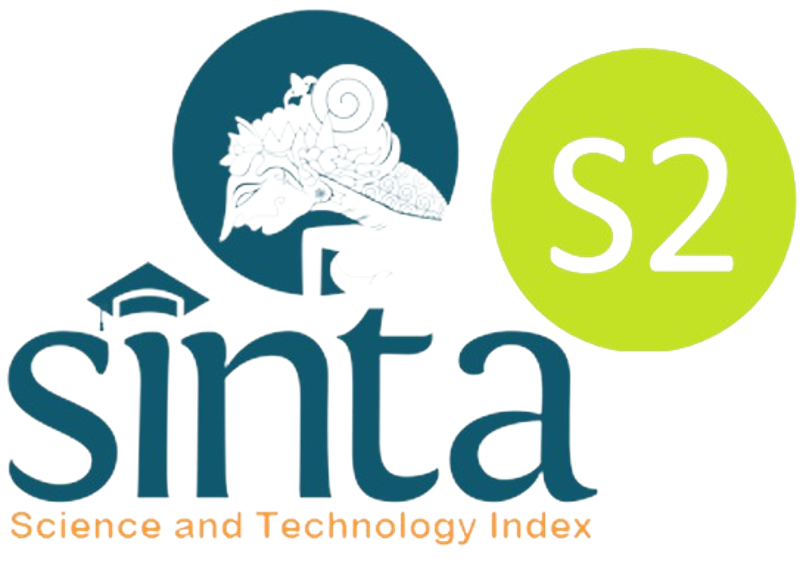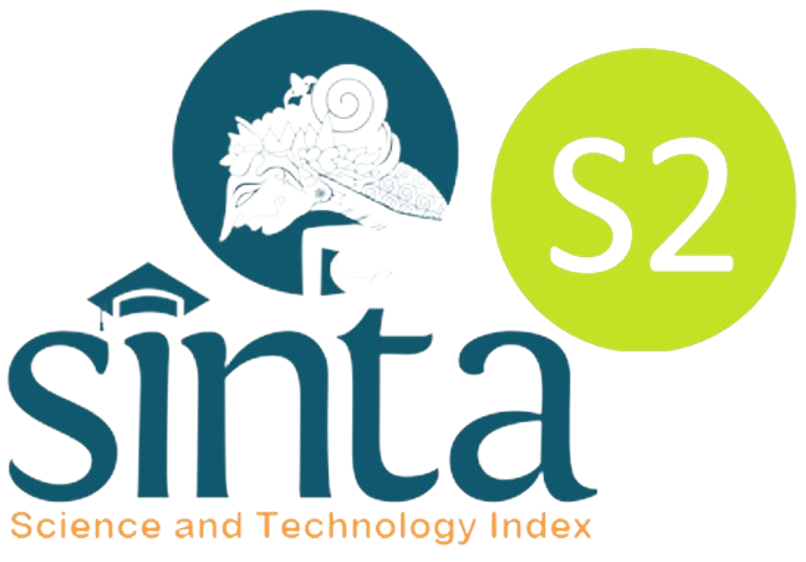DEVELOPMENT OF NATURAL SCIENCE LEARNING INSTRUMENTS WITH CONTEXTUAL APPROACH USING PROBLEM SOLVING MODEL TO IMPROVE CRITICAL THINKING SKILL OF JUNIOR HIGH SCHOOL STUDENTS
DOI:
https://doi.org/10.26740/jpps.v7n2.p1501-1506Keywords:
Developing learning instrument, Contekstual Approach, Problem solving Model, critical thinking skillsAbstract
The aim of this research is to develop learning instruments of science through Contextual Approach using problem solving model which are reasonable to increase critical thinking skills of students. Learning Instruments are developed using 4-D model with one group pretest-posttest design. The Learning Instruments are tested at 74 students class VIII MTs Negeri Bonde Majene Regency West Sulawesi Province third semester 2016/ 2017 school Year for measuring application of lesson plan, hindrances during learning process, result of learning which is critical thinking skills of students, and respons of students to the learning instruments developed. Data Collection uses validation method, observation, testing, and questionnaires. The data of this research are analyzed quantitatively and qualitatively description. Finding of the research result, namely: (1) Instrument Validity including lesson Plan, Text book of students, activity sheets of students, test instruments of critical thinking indicated valid; (2) practically learning instruments are obtained from: (a) application of Lesson plan categorized by 95.23% with excellent category, and (b) obstacles during learning process; and (3) affectivity of learning instruments in terms of : (a) critical thinking skills of students through n-gain with higher category over 0.7 (Hake, 1999), and (b) the respons of students to the instruments and application of learning are very good. Based on the result of data analysis, can be concluded that learning instruments of science through Contextual Approach using problem solving model are feasible to increase critical thinking skills of students.Downloads
References
Forawi, A.S. (2012). Perceptions on critical thinking attributes of science education standards. International Conference on Education and Management Innovation IPEDR, 30, 214-217.
Abdullah, R. S. (2013). Inovasi pembelajaran. Jakarta: Bumi Aksara.
Astuti, Sri. (2015). Pengembangan perangkat pembelajaran berbasis problem solving model polya dalam peningkatan keterampilan berpikir kritis pokok bahasan barisan bilangan siswa kelas IX SMP negeri kota probolinggo. Jurnal Pancaran, 4(4), 149-162.
Filsame, D. K. (2008). Menguak rahasia berpikir kritis dan kreatif. Jakarta : Prestasi Pustaka Karya.
Hake, R. (1998). Analyzing Change/Gain Score. Dept. of Physics, India University 24245 Hateras Street, Woodland Hill, CA, 91367 USA.
Hassoubah. (2008). Developing creative & critical thinking: Cara berpikir kreatif dan kritis. Bandung: Nuansa.
Hosnan. (2014). Pendekatan saintifik dan kontekstual dalam pembelajaran abad 21. Bogor: Ghalia Indonesia.
Ibrahim, M. (2002). Pengembangan perangkat Pembelajaran (Modul Integrasi Berbasis Kompetensi Guru Mata Pelajaran Biologi SLTP. Jakarta : Depdiknas.
Johnson, E. (2014). Contextual teaching & learning, terj. Ibnu Setiawan. Bandung: MLC.
Kertayasa, I Ketut. (2015). http://www. Indonesia pisacenter.com/2014/03/tentang-website.html. diakses tanggal 12 Oktober 2016.
Majid. (2015). Strategi pembelajaran. Bandung: rosda karya.
Pasific Policy Research Center. (2010). 21st Century Skills for Students and Teachers. Honolulu: Kamehameha Schools, Research & Evaluation Division.
Prahani, B.K., Nur, M., Yuanita, L., and Limatahu, I. (2016). Validitas model pembelajaran group science learning: Pembelajaran inovatif di Indonesia. Vidhya Karya, 31(1), 72-80.
Prahani, B.K., Soegimin, W.W., and Yuanita, L. (2015). Pengembangan perangkat pembelajaran fisika model inkuiri terbimbing untuk melatihkan keterampilan penyelesaian masalah berbasis multi representasi siswa SMA. Jurnal Penelitian Pendidikan Sains, 4(2), 503-517.
Prahani, B.K., Suprapto, N., Suliyanah, Lestari, N.A., Jauhariyah, M.N.R, Admoko, S., and Wahyuni, S. (2018). The effectiveness of collaborative problem based physics learning (CPBPL) model to improve students self-confidence on physics learning. Journal Physics: Conference Series, 997(1), 012008.
Ranjan, Dr. Das & Chandra Das. (2013). Math anxiety: The poor problem solving factor in school mathematics. International Journal of Scientific and Research Publications, 3(4), 1-5.
Raubi, L., Nurbiha, Yusof, M., & Shafi. (2015). An integrated model to implement contextual learning with virtual learning environment for promoting higher order thinking skills in malaysian secondary schools. International Education Studies Canadian Center of Science and Education, 8(13), 1913-9039.
Ristiasari, T. (2012). Model pembelajaran problem solving dengan mind mapping terhadap kemampuan berpikir kritis siswa. Unnes Journal of Biology Education, 1(3), 34-41.
Sadia, I. W., (2008). Model pembelajaran yang efektif untuk meningkatkan keterampilan berpikir kritis. Tesis Master . Undiksha
Shin Y. (2015). Effective teaching of higher order thinking (HOTs) in education. The online journal of distance education and e-learning, 3 (2), 41-47.
Sudiarman, Soegimin, W.W., and Susantini, E. (2015). Pengembangan perangkat pembelajaran fisika berbasis inkuiri terbimbing untuk melatihkan keterampilan proses sains dan meningkatkan hasil belajar pada topik suhu dan perubahannya. Jurnal Penelitian Pendidikan Sains, 4(2), 636-647.
Suharsimi. (2014). Prosedur penelitian: Suatu pendekatan praktik. Jakarta: PT. Rineka Cipta.
Sumiati, A. (2007). Metode pembelajaran. Bandung: CV Wacana Prima.
Yasir, M., Ibrahim, M., and Widodo, W. (2016). Pengembangan perangkat pembelajaran biologi berbasis metakognitif untuk melatihkan kejujuran siswa. Jurnal Penelitian Pendidikan Sains, 5(2), 1109-1015.
Yin, K.Y. (2011). Collaborative problem solving methods towards critical thinking. International Education Studies, 4(2), 58-62.
Yustina D. S. L. (2013). Pengembangan perangkat pembeljaran kimia dengan pendekatan kontekstual (CTL) untuk meningkatkan penguasaan konsep dan keterampilan berpikir kritis siswa pada materi asam basa di SMA. Tesis Master. Surabaya: UNESA.
Downloads
Published
How to Cite
Issue
Section
 Abstract views: 655
,
Abstract views: 655
, PDF Downloads: 446
PDF Downloads: 446












